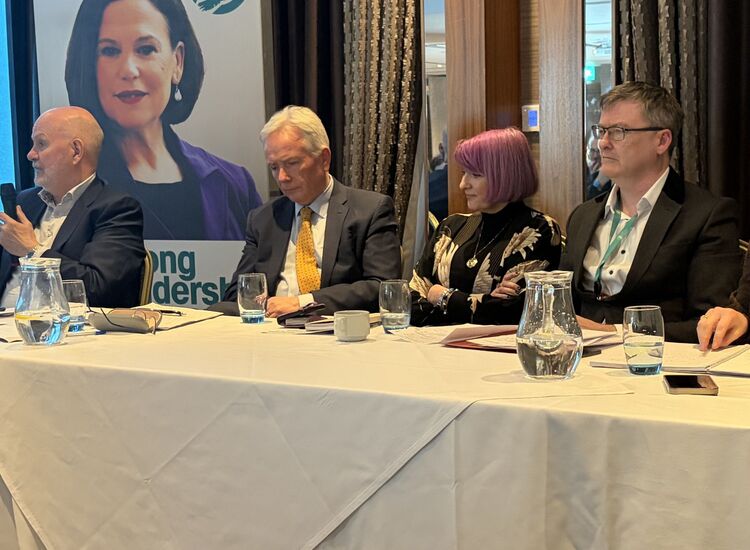You could take the view that the first Thanksgiving was also the moment when America - and the future United States of America - witnessed the very first food pantry in operation.
The Pilgrims were facing "food insecurity" to a degree that they were actually staring at outright hunger. Then along came some of the local Native Americans with a kind offer of assistance in the form of actual food.
The Pilgrims survived that Massachusetts winter. The future state, however, would witness food insecurity and outright hunger on the part of some of its citizens as a fixed part of the geopolitical landscape. The other forty nine states would face the same reality.
In the nineteenth century Native Americans would face hunger too. There were many trails of tears, while on the Great Plains an array of tribes would face outright starvation after the mass slaughter of the once immense herds of buffalo.
What the potato was to re-famine Ireland the buffalo was to those Plains tribes. The near eradication of the American Bison suited the government in Washington as it didn't want free roaming warriors hunting buffalo as they pleased.
Better to have the tribes on reservations and dependent on government supplied food. This was food stamps in an early form. Suffice it to say the tribes were better tolerated in this set of circumstances. But, in the main, official Washington, on a good day, viewed them as an inconvenience.
In recent days the spectacle of untold numbers of Americans lining up for food during the government shutdown would be a familiar sight to those tribes of yore.
Various states attempted to feed those dependent on the Supplemental Nutrition Assistance Program or SNAP. But Washington intervened and instructed the states distributing food to "immediately undo" this or be responsible for the "consequences."
With Thanksgiving just days away, and in the Year of Our Lord 2025, there are "consequences" in America for those trying to feed the hungry.
The Pilgrims would be doubtless astonished. So too would their indigenous neighbors, who did the right thing in a moment of peril for their fellow human beings.
Many will have been surprised to learn in recent days that one in eight Americans depends to one degree or another on SNAP, or to give it the older term, food stamps. And they do so all year round. You might think that succeeding governments would have somehow contrived to bring this level of dependance down over time. Yes, you might think.
You might also get to thinking that governments would contrive to stay open and functioning, especially after almost 250 years of trial and error. Yes, you might think.
But it's hard not to think that the people in all those food lines, viewed through a lens reaching back to high government in the nation's capital, came across as somehow being an inconvenience; a blot on a tableau of proclaimed perfection.
Nevertheless we push forward, ever hopeful that the better angels of our nature prevail in the face of danger to our fellows. Just as they did on that long ago first Thanksgiving.








